How to Choose the Right HVAC System for Your Home
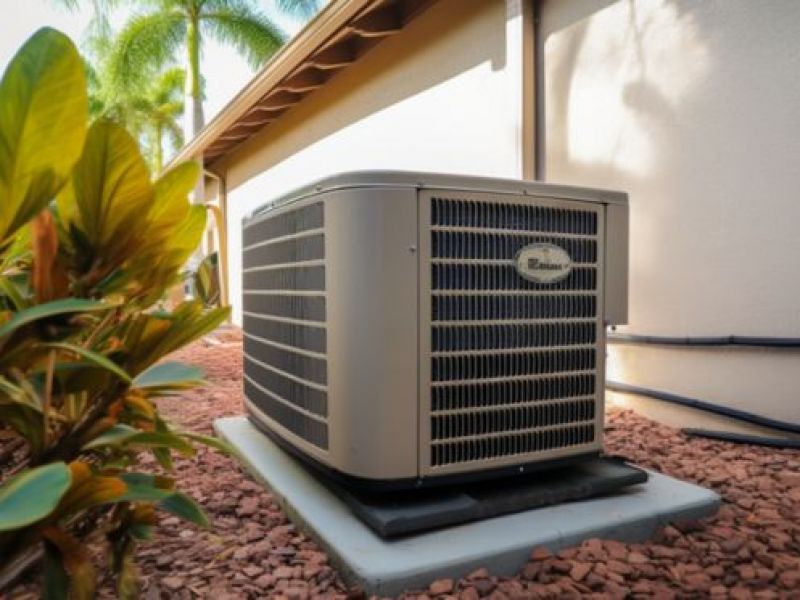
Table of Contents
When it comes to creating a comfortable and inviting atmosphere in your home, the choice of an HVAC (Heating, Ventilation, and Air Conditioning) system plays a pivotal role. Not only does it affect your daily comfort and air quality, but it also has a significant impact on your energy bills and environmental footprint. Selecting the right HVAC system for your home, therefore, is more than just a purchase—it’s an investment in your quality of life.
In this comprehensive guide, we’ll walk you through the essential steps to choose the ideal HVAC system tailored to your specific needs. Whether you’re building a new home, upgrading your current system, or simply curious about what’s out there, understanding the different types of HVAC systems, their energy efficiency, and how they fit with your lifestyle and budget is crucial. We’ll also delve into the importance of sizing, advanced features, and the significance of professional installation and maintenance.
Understanding HVAC Systems
Choosing the right HVAC system for your home starts with a basic understanding of what these systems are and how they function. HVAC stands for Heating, Ventilation, and Air Conditioning, and these systems are responsible for maintaining a comfortable indoor climate, ensuring good air quality, and regulating humidity levels. Let’s explore the different types of HVAC systems available and their respective roles in home comfort such as:
- Central Air Conditioners: These systems cool your home by circulating cool air through ducts and vents. They’re ideal for homes in hot climates and can be paired with a furnace for heating.
- Heat Pumps: Heat pumps offer both heating and cooling capabilities. They work by transferring heat between the indoors and outdoors, making them highly efficient, especially in mild climates.
- Ductless Mini-Splits: These systems provide targeted heating and cooling without the need for extensive ductwork. They are perfect for room additions, smaller homes, or areas where traditional ducted systems are impractical.
- Furnaces: Primarily used for heating, furnaces can run on electricity, natural gas, or oil. They heat air and distribute it throughout the home via ducts and are a staple in colder climates.
- Boilers: Boilers heat water and provide either hot water or steam for heating. Steam is distributed via pipes to steam radiators, while hot water can be distributed via baseboard radiators or radiant floor systems.
The impact of your HVAC system on your home’s comfort can’t be overstated. It regulates temperature, ensuring your home is warm during cold winters and cool during hot summers. It controls humidity levels, preventing your home from becoming too humid or too dry. Moreover, many HVAC systems come equipped with air filters that help in purifying the air, removing pollutants like dust and pollen. Choosing the right HVAC system is more than a matter of comfort; it’s also about energy efficiency and longevity.
Assessing Your Needs For HVAC Systems
Choosing the right HVAC system is more than a matter of comfort; it’s also about energy efficiency and longevity. The process of assessing the needs of your home involves considering various factors that directly influence the type and size of the HVAC system best suited for your home.
The size and layout of your home play a critical role in determining the capacity of the HVAC system you need. Larger homes require systems with greater capacity to effectively control the climate in every room. Conversely, a system that’s too large for your space can lead to energy inefficiency and uneven temperature control.
The climate of your area significantly affects your HVAC needs. In regions with extreme winters, a robust heating system is essential, while homes in hotter climates might prioritize powerful cooling. Areas with mild temperatures year-round might benefit most from heat pumps, which handle both heating and cooling efficiently.
Good insulation reduces the workload on your HVAC system by keeping warm air in during winter and hot air out during summer. Evaluate your home’s insulation in walls, attics, and around windows to ensure you choose a system that complements your home’s existing insulation.
If you or your family members have allergies or respiratory issues, consider an HVAC system that includes advanced air filtration to improve indoor air quality. Features like HEPA filters can be crucial for a healthier indoor environment. It’s also important to define your energy efficiency goals. Are you looking to reduce your carbon footprint or lower your energy bills, or both? High-efficiency systems might have a higher upfront cost but can provide savings in the long run.
By taking the time to assess these aspects, you can narrow down your choices and focus on HVAC systems that meet your specific requirements. Remember, what works for one home may not be ideal for another.
Exploring HVAC Features And Technologies
Once you have a clear understanding of the type of HVAC system you need, the next step is to explore the various features and technologies available in modern systems. These advancements not only enhance comfort and efficiency but also add convenience and can lead to significant energy savings. Here’s a look at some of the key features and technologies you should consider:
1. Smart Thermostats
Smart thermostats are a game-changer in home climate control. They learn your schedule and temperature preferences, making automatic adjustments to save energy while keeping you comfortable. Many models also offer remote control via smartphone apps, allowing you to adjust settings from anywhere.
2. Zoning Systems
Zoning systems provide the ability to control the temperature in different areas (zones) of your home independently. This is particularly useful in multi-level homes or in homes where different family members have varying temperature preferences. It also avoids heating or cooling unused spaces, leading to energy savings.
3. Variable Speed Technology
Traditional HVAC systems operate at full capacity, turning on and off as needed. Variable speed technology, however, allows the system to adjust its output to the exact needs of your home at any given time, leading to greater efficiency, extended system life, and enhanced comfort due to more consistent temperatures.
4. HEPA Filters and UV Lamps
For those concerned with indoor air quality, HEPA filters can trap tiny particles and allergens, significantly improving the air you breathe. UV lamps in HVAC systems can also help in reducing airborne pathogens and improving overall air quality.
By understanding and considering these features and technologies, you can choose an HVAC system that not only meets your heating and cooling needs but also offers enhanced comfort, energy efficiency, and convenience. In the next section, we will delve into the importance of installation and maintenance, which are crucial for ensuring the longevity and efficiency of your HVAC system.
HVAC Installation and Maintenance
After selecting the right HVAC system with the desired features and technologies, the focus shifts to installation and maintenance. These aspects are crucial for the optimal functioning, efficiency, and longevity of your system.
New HVAC systems must be correctly installed in order to function properly and safely, and require an experienced technician to ensure all elements are correctly interconnected. An installation may involve installing new ductwork, setting up new or replacement air conditioning systems with compatible furnaces, connecting exhaust fans and air handlers, and may require ventilation, air sealing, and insulation. Moreover, Humidification systems often need to be installed to maintain moisture levels in the air.
However, it isn’t enough to install a new system; HVAC maintenance is also necessary in order to keep it running efficiently. A tune-up typically includes inspection and cleaning of all of the components. This includes checking for worn out parts, inspecting wiring, testing the safety controls, and checking refrigerant levels. On the other hand, a system should also be inspected annually to ensure that the filter is changed and that proper airflow is maintained. Therefore, a annual inspection by a professional should also include checking the settings of the indoor and outdoor unit for proper use.
There a few tasks homeowners can do to assist in keeping their HVAC system working properly. These include:
- Regularly Inspecting and Cleaning Vents: Ensure vents are free from dust and obstructions.
- Thermostat Batteries: Replace batteries in thermostats as needed.
- Keeping Outdoor Units Clear: Remove debris, leaves, and dirt from around outdoor units.
- Regularly Switch Out Air Filters: These remove airborne particles in circulation and reduce energy costs.
Environmental Considerations And Energy Efficiency For Systems
Environmental considerations and energy efficiency for systems are becoming increasingly important components of system design and operation. Growing concerns over climate change, resource scarcity, and environmental degradation have made it vital for manufactures to ensure devices are designed and used in a manner that minimizes their environmental impact.
Opting for HVAC systems with high energy efficiency ratings like SEER (for cooling systems) and AFUE (for heating systems) not only lowers your energy bills but also reduces your environmental impact. These systems use less energy to provide the same level of comfort, thereby decreasing greenhouse gas emissions.
Some older HVAC systems use refrigerants that are harmful to the ozone layer. Newer models use eco-friendly refrigerants like R-410A, which have a significantly lower impact on the environment. When choosing a system, check the type of refrigerant it uses.
Smart thermostats can reduce energy consumption by adjusting the temperature based on your schedule and preferences. This not only saves energy but also minimizes unnecessary heating and cooling when you’re not home. Enhancing your home’s insulation and sealing leaks can significantly reduce the workload on your HVAC system. This leads to less energy consumption and a smaller carbon footprint.
By taking these environmental factors into account, you can choose an HVAC system that not only meets your personal comfort needs but also aligns with your values of sustainability and environmental responsibility.
Professional HVAC Services Near You
Selecting the right HVAC system for your home is a decision that balances comfort, efficiency, budget, and environmental considerations. Throughout this guide, we’ve explored the various aspects of HVAC systems—from understanding the different types, assessing your specific needs, to considering the advanced features and technologies available.
Remember, the ideal HVAC system for your home should not only provide comfort but also align with your energy efficiency goals and budget. It should be a system that you can rely on for years to come, offering both functionality and sustainability. While the process may seem daunting, taking the time to understand your needs and exploring your options can lead to a decision that enhances your living space and contributes positively to your well-being.
Here at Air Docs Heating & Cooling, we’re here to guide you through all of your HVAC needs! Whether you’re in need of maintenance, repairs, installation, or replacement, our entire team is dedicated to getthing the job done right!
Frequently Asked Questions About HVAC Systems
How do I determine the right size HVAC system for my home?
The correct size depends on various factors including your home’s square footage, ceiling height, window types, insulation quality, and climate. It’s essential to have a professional perform a load calculation to determine the appropriate size, as an incorrectly sized system can lead to inefficiency and reduced comfort.
What energy efficiency ratings should I look for in an HVAC system?
Look for Seasonal Energy Efficiency Ratio (SEER) ratings for air conditioners and Annual Fuel Utilization Efficiency (AFUE) ratings for furnaces. Higher SEER and AFUE ratings indicate more energy-efficient units. In general, a SEER rating of 15 or higher and an AFUE rating of 90% or more are considered efficient.
Can installing a new HVAC system reduce my energy bills?
es, installing a new, energy-efficient HVAC system can significantly reduce your energy bills. Modern systems are designed to use less energy while providing optimal home comfort, leading to cost savings over time.
Other Blogs You May Be Interested In
Categories

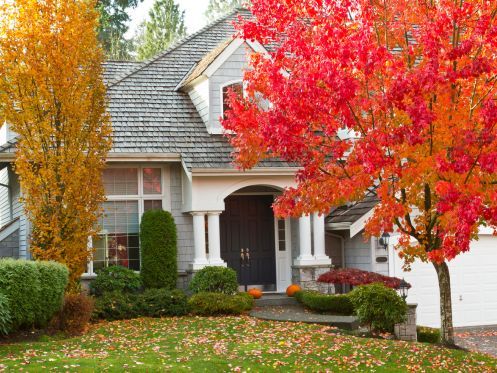
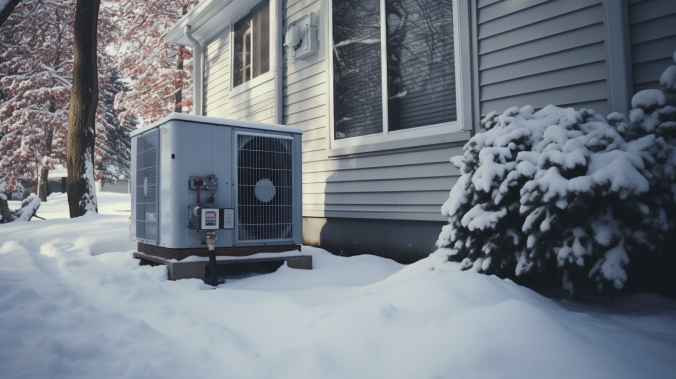

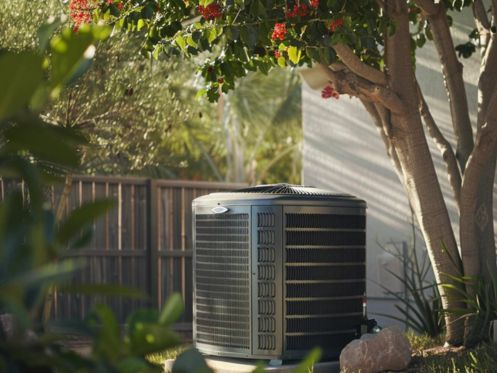

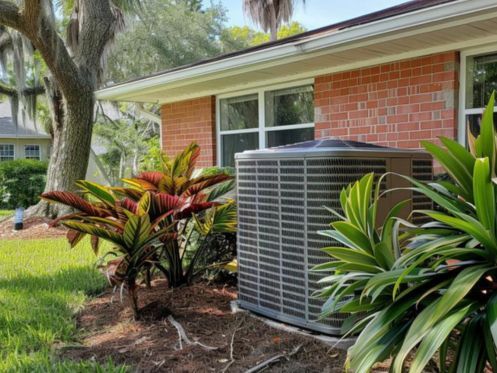
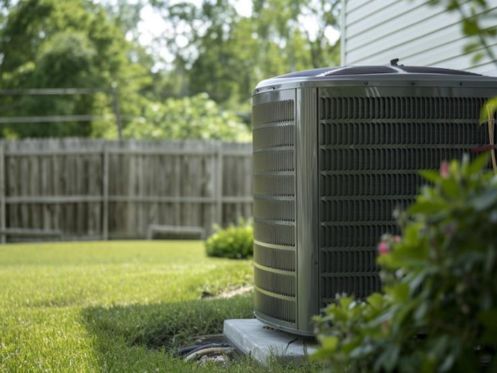
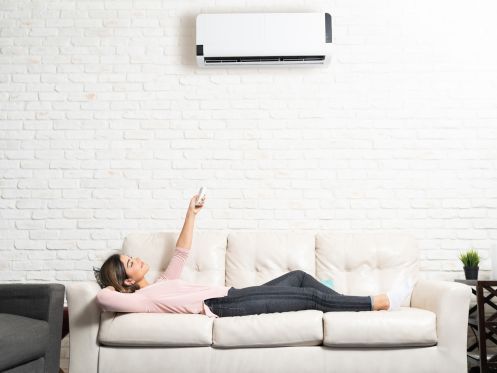
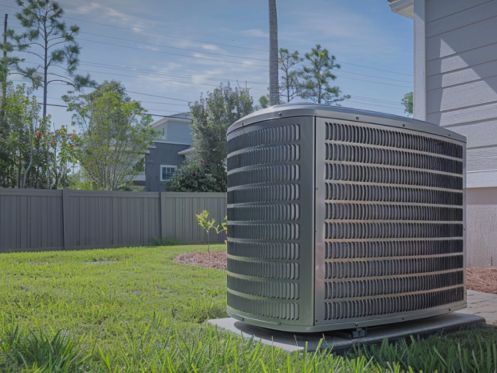
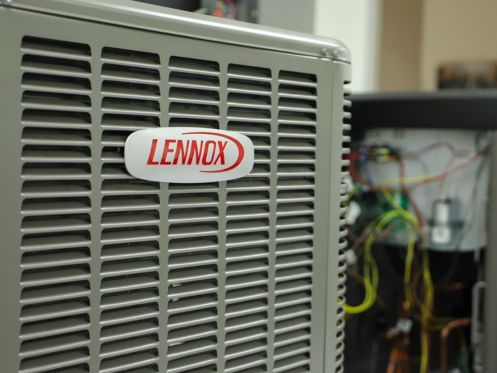

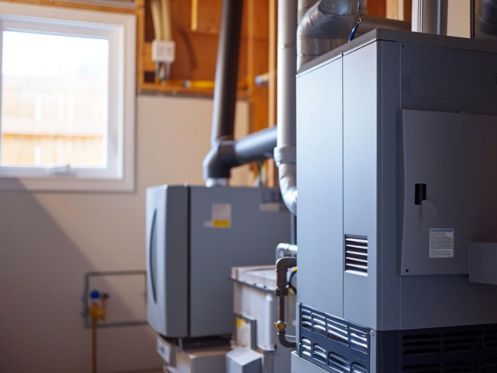
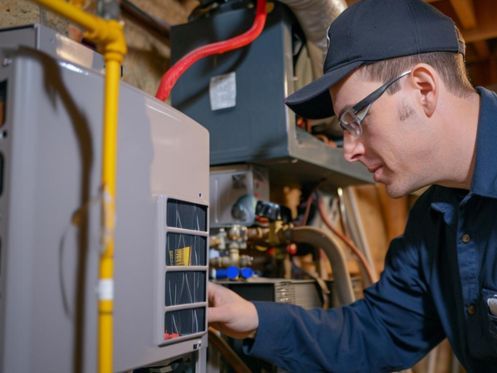
Leave a Reply